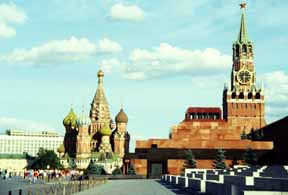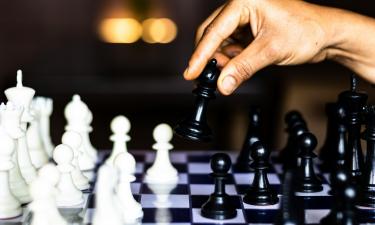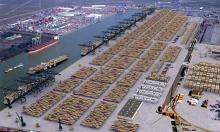World leaders gather for Victory Day celebrations and global political summit in Moscow
It is easier to say who of the world leaders is not coming for the grand celebrations in Moscow
The forthcoming celebration of the Victory Day on May 8th and 9th in Moscow will apparently have not other precedent either in the history of post-Soviet Russia, but also in the entire post-war history of the USSR. Nevertheless, despite the scale of official ceremonies and the obvious reason for them, it is big politics that is going to reign at the holiday. It is noteworthy that this politics is not as pure as it would supposed to be on such an important day for the whole world. 
Moscow is gradually becoming a closed city on the threshold of the Victory Day. The Russian administration is expected to welcome 56 world leaders, heads of governments and international organizations and even three former presidents too. The latter include ex-presidents of Cyprus and Poland, Glavkos Kliridhis and Wojciech Jaruzelsky and the former Romanian King Michael I.
It goes without saying that all leaders of the Group of Eight, including President George W. Bush, accepted Vladimir Putin's invitation to come to Moscow on May 9th. UN Secretary General Kofi Annan and the Secretary General of UNESCO, Koichiro Matsuura, are expected to arrive in Moscow too. Almost all leaders of the former USSR, or the Commonwealth of Independent States (CIS) will gather in the Russian capital as well. In other words, it is easier to say who of the world leaders is not coming for the grand celebrations in Moscow and who is not going to see the most impressive parade of the Russian army in the entire history of Moscow's Red Square.
Kim Jong il, the North Korean dictator will be one of those people, along with Estonian and Lithuanian Presidents Valdas Adamkus and Arnold Ruutel. The reasons, for which they refused to accept the Kremlin's invitation, are different, of course. On the other hand, it is obvious that the North Korean leader's presence in Moscow would make other VIP guests feel rather uncomfortable. The unwillingness of the two Baltic presidents to honor the celebrations in Moscow with their presence turns the whole undertaking to a quite politicized event. It is worth mentioning that the visit of the Georgian President, Mikhail Saakashvili, is still questionable too.
About 3,000 journalists accredited for their participation in the celebration of the 60th anniversary of Victory over Nazism will definitely be reporting about unexampled security measures that are currently being taking in Russia's capital.
Nevertheless, political problems will be most important for this global summit in Moscow. The Russian leadership has a lot of questions to discuss with the leaders of the CIS. Furthermore, there will be another meeting between the Russian and American president as well.
It became known yesterday that Russian and Latvian officials would sign the border agreement between Russia and Latvia. The document is to be signed on May 10th. The fate of the Russian-Estonian border agreement is still unknown.
Furthermore, Russia has been experiencing quite negative relations with its former post-Soviet partner, the republic of Georgia. Georgia demands the withdrawal of Russian military bases from its territory – this question is the most important one on agenda at this point. The text of the special agreement on the matter is to be coordinated by May 9th as well. A spokesperson for the Georgian Foreign Ministry stated that President Saakashvili would not able to visit Moscow on May 8-9th if the problem was going to be left without any progress. Furthermore, the situation would become much more serious, if the agreement is not signed before May 15th. Moscow officials refer to such position of Georgia as an ultimatum.
It is noteworthy that the Putin-Bush meeting in Moscow will be held against the background of another incident: the arrest of Yevgeny Adamov, the former Russian Nuclear Power Minister. The Russian official has been recently arrested in Switzerland, whereas the US authorities are currently striving for his extradition. The control over Russian nuclear objects has probably been one of the most important issues in all recent US-Russian talks. Amadov's case, therefore, is becoming the USA's trump card in the struggle for such control. It is not ruled out that the meeting of the Russian and US leaders will not be very festive.
Arkady Dubnov
Subscribe to Pravda.Ru Telegram channel, Facebook, RSS!




